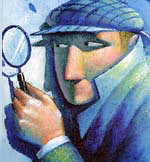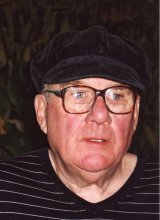
|
|
||||
|
Today is February 25th , 2026
FRAUD ALERT
QUEBECRECOMMENDATIONBooks |
MYTHS OF JUSTICE
Myths of Justice
Remember none of the participant is under oath to seek justice. Look for yourself: At various times and places in Canada only two crimes were sure to be prosecuted when the powerful committed them: spying and treason. Nothing else was certain. That's changed just a little. Today all murders and wrongful deaths are expected to be prosecuted as well. Today, whether to follow up on crimes less than murder and wrongful death is a call made by department higher ups or the first law enforcers on the scene. They decide whether the powerful are or are not above the law and in most cases the powerful are above the law. Any man unprivileged or otherwise who have gone through the court system can tell you the reality of justice. Ask the people who have lost their careers, their jobs, their homes, their families based upon the myths of justice and the lawlessness of our courts. The myths often recited are: This myth is based on the idea that human actions are governed primarily by personal responsibility, that a person's behaviour reflects his or her values and choices. People who act responsibly stay out of trouble. Those who don't are subject to punishment that not only fits the crime but sends a deterrent-laden message to other irresponsible people that crime does not pay. Prisoners are people who acted irresponsibly and must suffer the consequences of their actions: "You do the crime; you do the time." This myth also suggests that criminals deserve what they get. This approach views "bad" people as deserving of punishment. By extension this can mean that people in prison continue to be irresponsible, using up taxpayers' dollars for their "three hots and a cot" when they could have avoided the whole situation in the first place by behaving better and not making wrong choices. Those out of prison by contrast are law-abiding citizens who behave appropriately. We only have to look at our governments, and any one of privilege to know that this myths is not accurate. Most Canadians believe, and want to believe, that Canadas justice system treats everyone fairly despite clear evidence that this is not the case. Most people unfamiliar with the criminal justice system believe that, despite occasional aberrations, the democratic principles of "presumed innocent until proven guilty," guaranteed representation by a lawyer, a fair trial with a jury of peers, and wise sentencing judgments are universally practiced for all Canadians. Transgressions are considered an exception to the rule, not systemic problems. This myth that justice is served equally ignores the realities of how race and class inequities permeate our system. Poor people, aboriginals, French are disproportionately targeted and represented at various stages in the criminal justice system from police surveillance and arrests to trials and sentencing and ultimately to imprisonment. The system is self-generating because it continues to punish those it defines as offenders and simultaneously it benefits those who remain outside its control. Many Canadians of upper middle class and aboriginals of the same class assume the system of law itself is neutral, just and righteous. Those who assume that the law is just, rarely question the process of criminalization and who it benefits. This myth, in part, persists because it disregards the historic and current use of the system to maintain inequality. Related to the belief that justice is blind, most Canadians and even some middle and upper class aboriginals believe that police, courts and prisons work to protect them from crime and "dangerous" people. Central to the notion that the system is working is the belief that Canadas criminal justice system protects the innocent and provides for their security. This myth is rooted in the false assumption that prisons work to create safety and reduce "crime." It assumes that only prisons and police can ensure safety. This myth succeeds because it ignores the disproportionate arrest, conviction, and imprisonment of the poor and aboriginals. The idea also perpetuates the divide between so called "bad" people and "good" people. In this view, only bad people have to worry about being caught up in the system. Bad people must face the long arm of the law, and good people who witness or are victims of crime do their duty by speaking their mind in court, where justice is served. Certain myths and false assumptions are so widely held in Canada today that they contribute to the firm control of the criminal justice system. These myths are the basic building blocks of an ideology based on punishment rather than reconciliation, and an examination of them should help criminal justice activists understand how the growth of the criminal justice system is influenced by these myths. Much of the idealistic language about the promise of Canada and the Canadian way of life is worded in ways that appeal to Canadas white middle-class. These common themes, even when they are known to be inaccurate, still influence the way we see the world. The System capitalizes on the widespread cultural acceptance of these myths by designing frames that resonate with White middle-class culture. When myths like these are used to justify a punitive criminal justice system, many people find it hard to disagree, because there is often a kernel of truth, no matter how small, that progressive activists may agree with. Challenging these myths is also difficult because at some level the myths have been culturally accepted as a way to describe reality- even if people are not consciously aware of them because they are so embedded. A progressive response needs to examine, broaden, and reframe concepts such as safety and crime rather than accepting the systems definition. The following link is worth a read, as a former lawyer by the name of John Carten, exposes what he claims to be highest corruption in Canada. |
LEGAL ABUSE SYNDROME |
||
Justice is a conscience, not a personal conscience but conscience of the whole of the humanity.
Those who clearly recognize the voice of their own conscience usually recognize also the voice of Justice.
Alexander Solzhenitsyn

